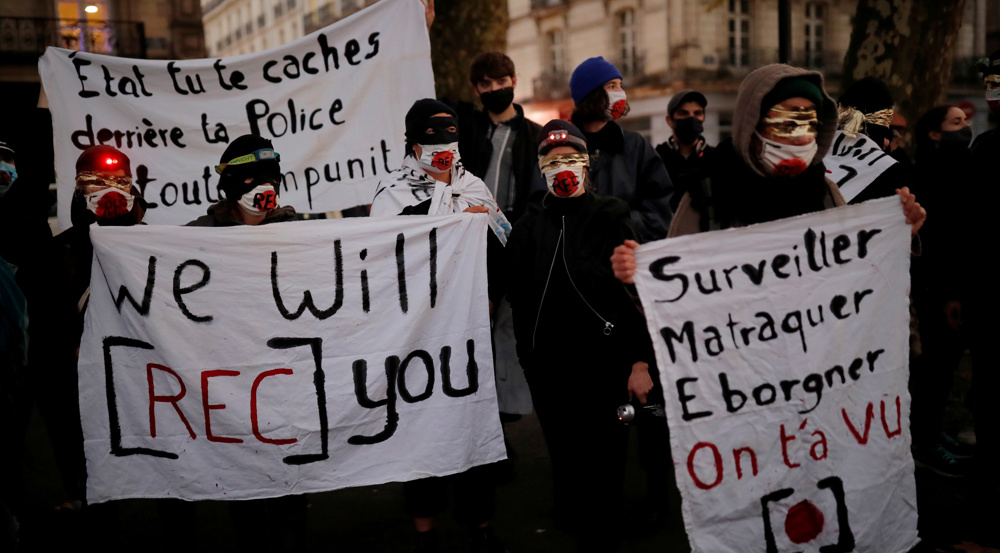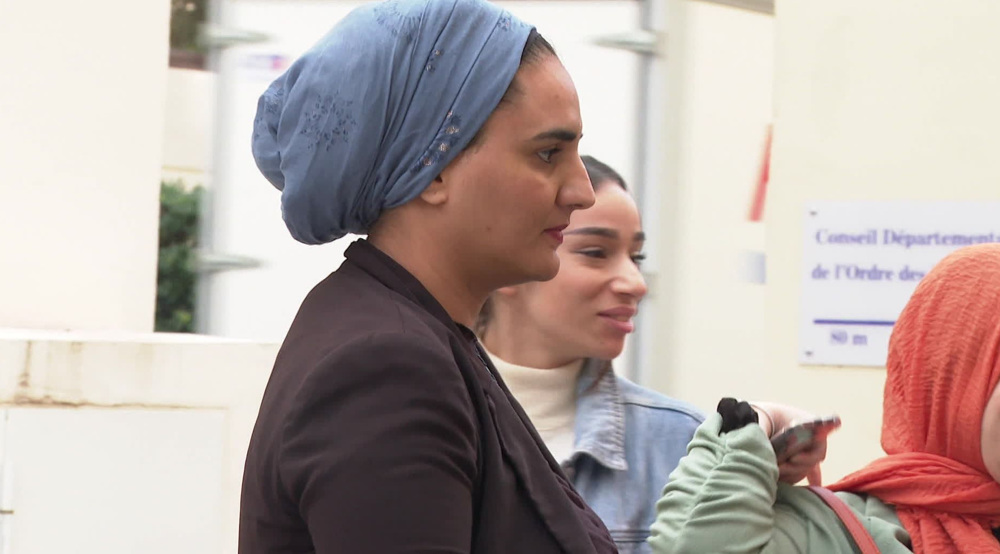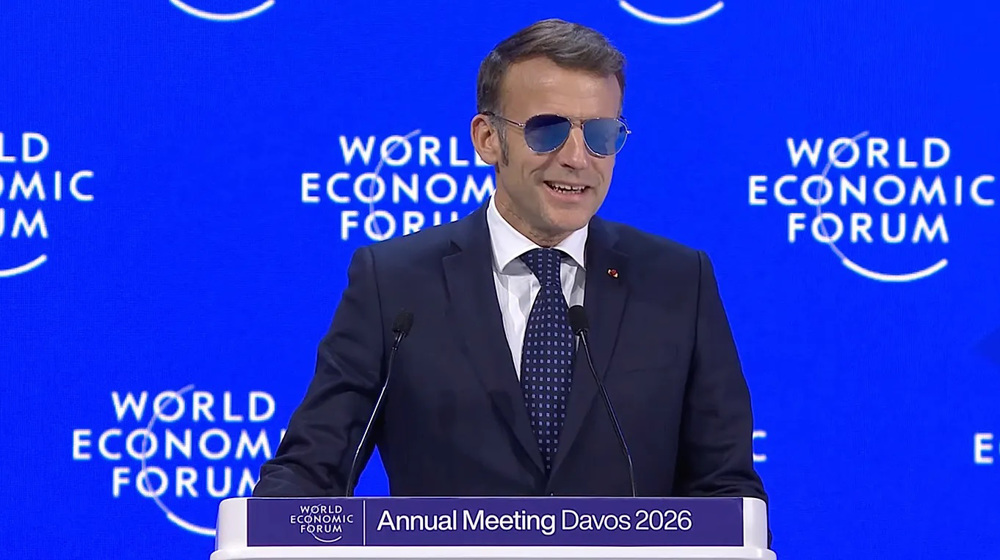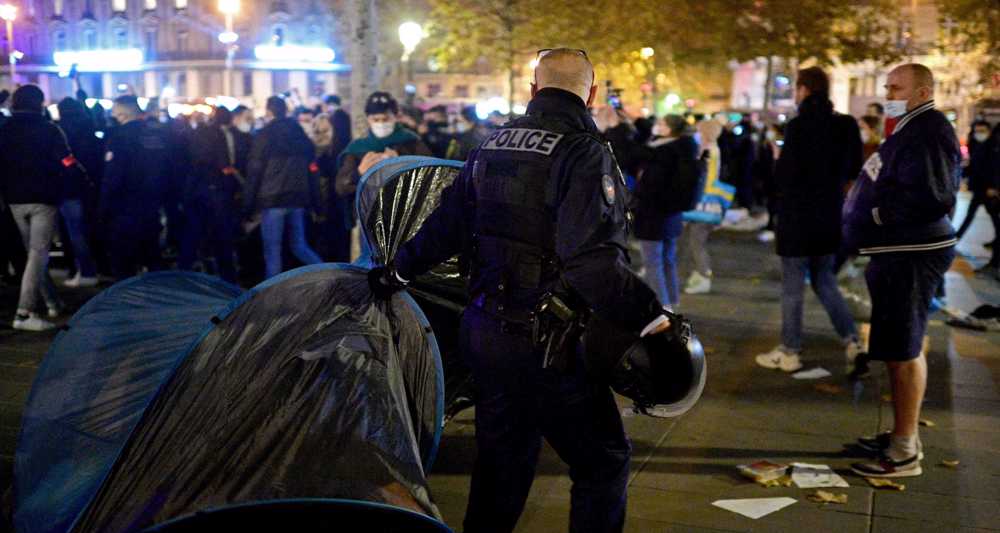Lower house of French parl. approves bill banning police identification
The lower house of the French parliament has passed a controversial security bill that restricts the publication of images of on-duty police officers, in a move that has raised concern about the media and citizens' ability to hold police accountable for potential illegal behavior.
French lawmakers passed the bill, known as the Global Security Bill, at the French National Assembly on Tuesday. The bill will head to the Senate in December.
Under the proposed legislation, anyone who shares images of law enforcement officers "with the intent to cause them harm, physically or mentally," would face up to one year in prison and a 45,000-euro (53,500-dollar) fine.
The legislation, at the same time, expands the ability of security forces to film ordinary citizens without their consent through police bodycams and drones.
The proposed bill has sparked protests and criticism from journalists and human rights groups.
Amnesty International warned that if the bill became law in its current form, France would become an exception among democracies.
"If people cannot film anything in the streets when the police may sometimes have an illegal use of force, it's a very worrying message to send," said Cecile Coudriou, the president of Amnesty International France.
"On one hand, citizens are asked to accept the possibility of being filmed under the pretext that they have nothing to fear if they have done nothing wrong. And at the same time, the police refuse to be filmed, which is a right in every democracy in the world," Coudriou said.
The European Union (EU) also reacted to the proposed legislation, saying on Monday that journalists must be able to "work freely and in full security."
A spokesman for the European Commission said that Brussels called on the bloc's member states to "respect the principle of proportionality and find the right equilibrium between guaranteeing public security and the protection of citizens' rights and freedoms, including freedom of expression, [and] press freedom."
Reporters Without Borders also described the provision as too vague and "open to interpretation and hard to determine."
"Any photos or video showing identifiable police officers that are published or broadcast by critical media outlets or are accompanied by critical comments could find themselves being accused of seeking to harm these police officers," said the group.
France's human rights ombudsman, Claire Hédon, has also criticized the bill. She said the draft bill "raises considerable risks of infringement of several fundamental rights, in particular, the right to privacy and freedom of information."
French Prime Minister Jean Castex, however, defended the new law, calling it a step in the right direction.
He said that "in our legislative arsenal, there already exists the possibility to punish anyone who uses, in an ill-intentioned way, the videos that they publish."
Groups representing journalists wrote in a letter to Castex that "the vague and very broad definition of the crime thus created would have deleterious effects on journalistic and editorial work."
But the bill's advocates argue that nothing in the bill stops journalists from doing their job, since prosecution would depend on the need to show an "intent to cause harm."
Thousands of people protested the bill in the country on Saturday.
Protest rallies were held in Paris with the participation of representatives of the media, and "yellow vest" protesters.
France has seen widespread demonstrations this year against police brutality and racism.
US bishops urge ‘respect for life’ as anger swells over ICE killings in Minneapolis
US systematically paralyzing international institutions, Iran tells APA session
Iranian Embassy condemns Israeli airstrikes in southern Lebanon
10 foreign spy agencies involved in plot to destabilize Iran: IRGC intelligence
VIDEO | Gazans pay tribute to Palestinian artists killed by Israel, honor their families
Minneapolis murders by ICE – backed by Trump – push US to the brink as protests intensify
Zelensky claims US security pact '100% ready' as war continues
Lebanese journalist targeted for exposing President Aoun’s pro-US, anti-resistance agenda














 This makes it easy to access the Press TV website
This makes it easy to access the Press TV website